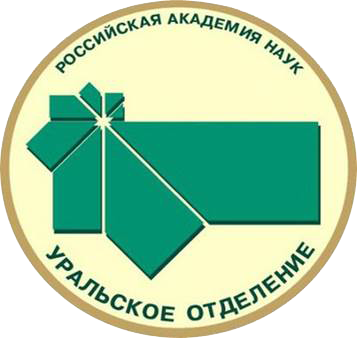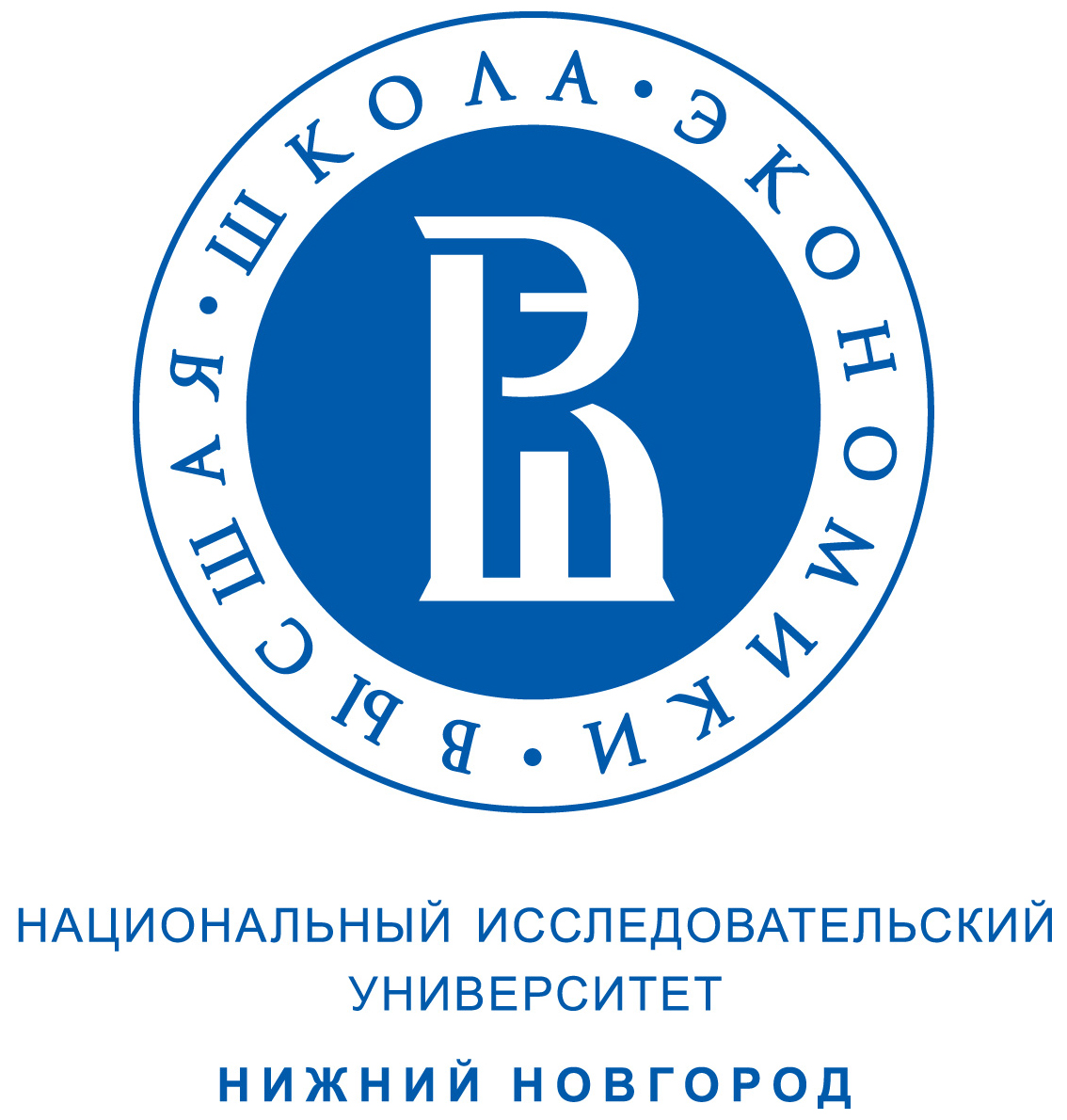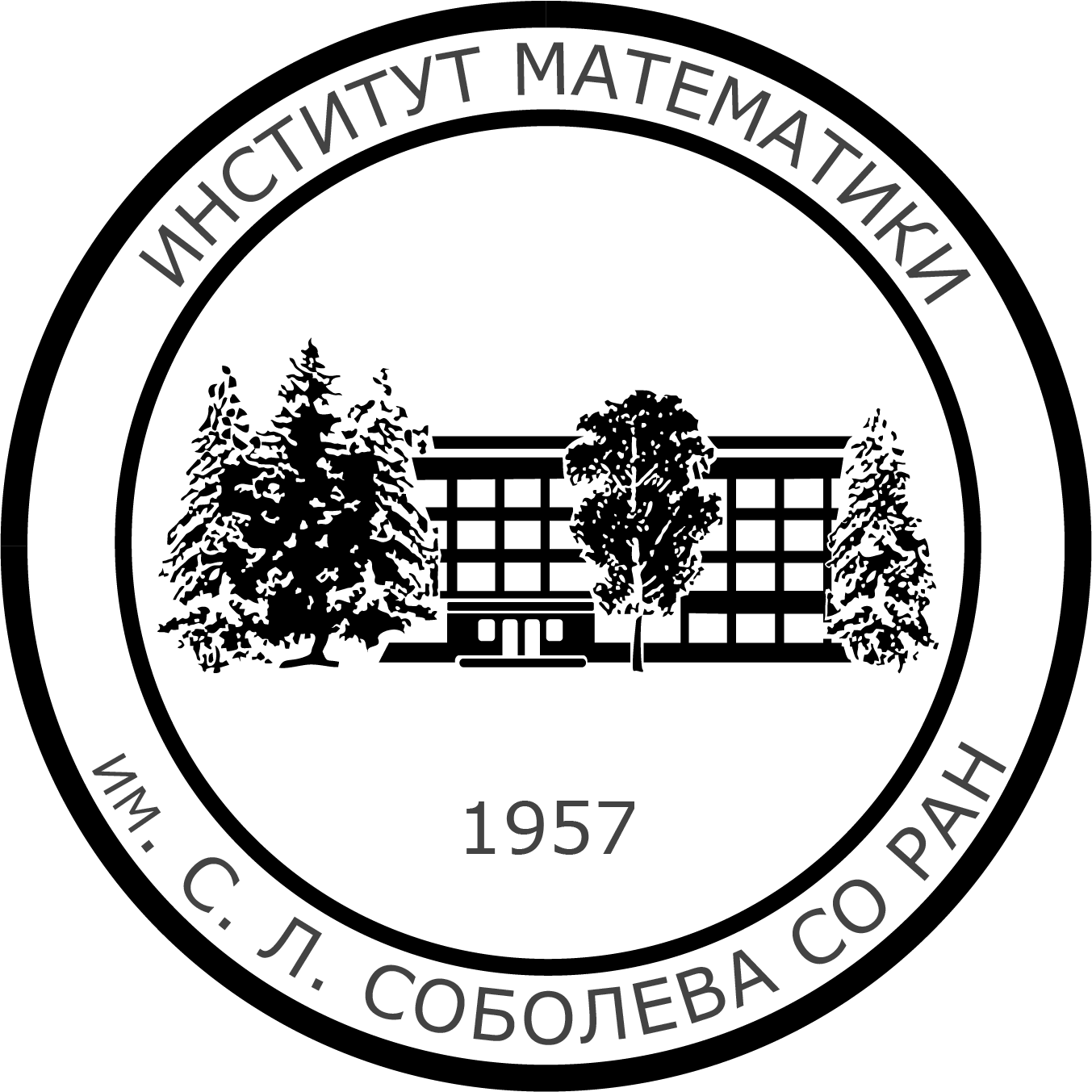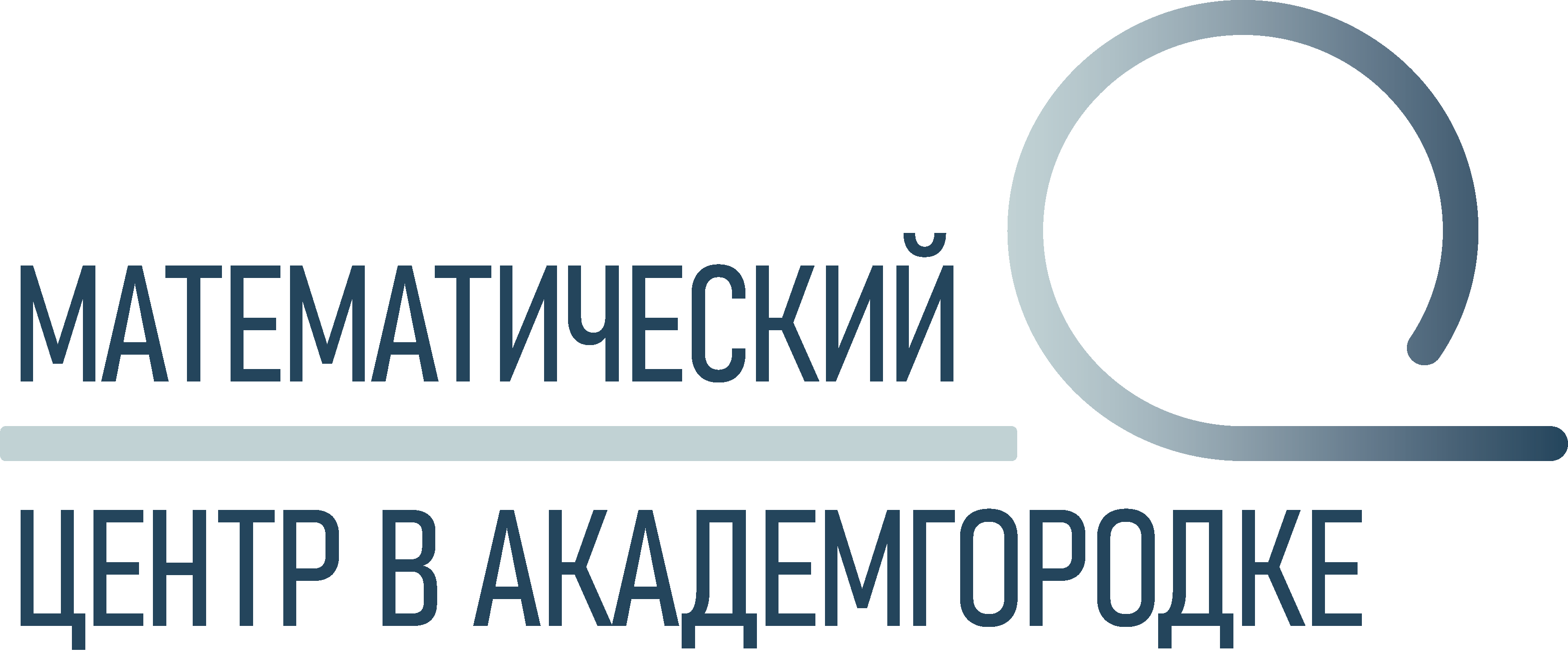Новости
Young participants Best Papers Awards
Программный комитет поздравляет всех лауреатов и просит их обратиться к по адресу по вопросу передачи финансовой части присужденных премий
Уважаемые участники концеренции.
На сайте конференции выложена электронная версия сборника тезисов
Программный комитет MOTOR 2023 при спонсорской поддержке  планирует присудить несколько премий Best Paper Award для молодых участников конференции
планирует присудить несколько премий Best Paper Award для молодых участников конференции
Уважаемые коллеги
Пожалуйста, обратите внимание на инструкцию по первому дню конференции
До скорой встречи на МОТОР 2023!
С уважением, программный комитет MOTOR2023
Уважаемые коллеги.
Регистрация на конференцию MOTOR 2023 закончена.
Ссылки на онлайн заседания в Zoom высланы вам на электронную почту через систему Equinocs
До скорой встречи!
С наилучшими пожеланиями, программный комитет MOTOR2023
Уважаемые коллеги.
Опубликован первый том трудов конференции. Свободный доступ на 4 ближайшие недели будет открыт по ссылке.
До скорой встречи, программный комитет MOTOR2023
Уважаемые коллеги. Предварительная программа конференции готова.
Если вам не удалось найти свой доклад, просим обращаться по адресу
До скорой встречи в Екатеринбурге, программный комитет MOTOR2023
Дорогие участники. Пожалуйста, обратите внимание на предварительные списки докладов .
По содержанию, доклады объединены в 8 тематических секций. Ввиду ограниченности времени, предоставляемого для проведения заседаний, в программу включены только доклады, хотя бы один из авторов которых зарегистрирован на конференции (выслал заполненную регистрационную форму).
Ваши вопросы и пожелания по формированию программы просим отправлять по адресу.
С уважением, программный комитет MOTOR2023.
Уважаемые участники. По просьбе Оргкомитета хотим вам напомнить, что бронирование номеров в этом году производится участниками конференции самостоятельно.
Советы Оргкомитета по бронированию номеров в гостинице "Октябрьской", а также информацию о гостиницах, находящихся в непосредственной близости от места проведения конференции, вы можете найти на нашем сайте, в разделе "Место" .
Большое спасибо и до скорой встречи.
Уважаемые участники. До нашей встречи на MOTOR 2023 осталось чуть меньше месяца. Пришло время подвести предварительные итоги процедуры регистрации.
По традиции, в программу конференции включаются доклады,
Текущий список докладов, который ляжет в основу формируемой программы конференции, находится здесь
Если по какой-то причине вы не нашли в нем своей статьи, пожалуйста, свяжитесь с PC конференции.
Большое спасибо и до скорой встречи.
Дорогие участиники. Ранняя регистрация на конференцию завершается 15 мая.
Все участники, приславшие аннотации сообщений, приглашаются зарегистрироваться для включения их сообщений в программу конференции. Большое спасибо.
О конференции
22-я Международная конференция "Теория математической оптимизации и исследование операций" (MOTOR2023) http://motor2023.uran.ru состоится 2-8 июля 2023г. в г.Екатеринбурге, столице Урала, Россия, на границе Европы и Азии.
Конференция посвящена памяти академика РАН И.И.Еремина, которому 22 января 2023 исполнилось бы 90 лет.
Цель планируемого научного мероприятия состоит в объединении широкого круга исследователей и специалистов в области актуальных проблем математического программирования, глобальной и дискретной оптимизации, теории вычислительной сложности и комбинаторных алгоритмов, оптимального управления и теории игр, а также практических приложений в исследовании операций, математической экономике и анализе данных.
Важные даты
5 февраля, 2023
5 марта, 2023
5 апреля, 2023
23 апреля, 2023
Информационное письмо
Прием статей / тезисов открыт!
https://equinocs.springernature.com/service/MOTOR2023
Предыдущие события
Конференция
Даты проведения
Место проведения
Труды
История
Серия конференций "МОТОР" развивает четыре известные международные и всероссийские конференции в области оптимизации, исследования операций и приложений, регулярно проводимые на территории Урала, Сибири и Дальнего Востока с середины XX в.
Конференция
Год основания
Число
мероприятий
Сайт
Байкальская международная школа семинар "Методы оптимизации и их приложения" (MOPT)
1969
17
Всероссийская конференция "Математичес- кое программирование и приложения" (MPA)
1972
15
Международная конференция "Дискретная оптимизация и исследование операций" (DOOR)
1996
9
Международная конференция "Проблемы оптимизации и их приложения" (OPTA)
1997
7
Тематика конференции
- математическое программирование
- некорректные и несобственные задачи оптимизации
- глобальная оптимизация
- целочисленное программирование и комбинаторная оптимизация
- вычислительная сложность, приближенные алгоритмы, схемы, оценки, эвристики и метаэвристики
- оптимальное управление и теория игр
- оптимизация и теория приближений функций
- оптимизация в статистическом обучении и анализе данных
- приложения в исследовании операций: задачи составления расписаний, маршрутизации, размещения предприятий, упаковки и раскроя, управления производством и т.д.
Организаторы конференции
Почетные председатели
Председатель программного комитета
Сопредседатели программного комитета
Программный комитет
Организационный комитет
Приглашенные докладчики
Corresponding member of NAS of Azerbaijan, Prof. Kamil Aida-Zade (joint work with Dr. Samir Guliyev)
Institute of Control Systems, Baku,
Azerbaijan
Управление с Обратной Связью на Классе Зональных Управлений
Abstract: Предлагается подход к управлению с обратной связью как нелинейными объектами с сосредоточенными параметрами, так и точечными источниками объектов с распределенными параметрами. Подход заключается в том, что все множество возможных фазовых состояний объекта разбивается на конечное число зон (подмножеств), а синтезируемые управления определяются не самими замеренными значениями состояния, а зональными значениями параметров зон, которым принадлежат текущие замеренные состояния объекта. Получены необходимые условия оптимальности зональных значений параметров обратной связи, проведены вычислительные (компьютерные) эксперименты на тестовых задачах синтеза управления как объектами с сосредоточенными параметрами, так и распределенными параметрами.
Corresponding member of RAS, Prof. Vladimir V. Vasin
Krasovsky Institute of Mathematics and Mechanics, Ekaterinburg,
Russia
Итерационные процессы фейеровского типа в задаче условной квадратичной минимизации
Abstract: Доклад представляет собой краткий обзор методов решения задачи условной квадратичной минимизации на основе итерационных методов фейеровского типа, в которых широко используются идеи и методы, заложенные в работах И.И.Еремина – основателя Уральской научной школы по математическому программированию. Наряду с ограничениями общего вида рассматриваются варианты базовой задачи с ограничениями в форме систем равенств и неравенств, которые имеют многочисленные приложения. Значительное внимание уделяется частным постановкам задачи, среди которых: определение метрической проекции, решение задачи линейного программирования, которые имеют самостоятельный интерес. Отличительной чертой этих методов является то, что для них устанавливается не только сходимость, но и устойчивость к погрешностям входных данных, т.е. методы порождают регуляризующие алгоритмы в отличие от прямых методов, изложенных, например, в классической монографии C.T.Lawson, R.J.Hansen, 1995, которые этим свойством не обладают.
Prof. Mario R. Guarracino
Higher School of Economics, Russia and Università degli Studi di Cassino, Italy
Semi-supervised Learning with Depth Functions
Abstract: Depth functions have been exploited in supervised learning since years. Given that the depth of a point is somehow a distribution-free measure of its distance from the center of a distribution, their use in supervised learning arose naturally and it has seen a certain degree of success. Particularly, DD-classifers and their extensions have been extensively studied and applied in many applied fields and statistical settings. What has not been investigated so far is their use within a semi-supervised learning framework. That is, in case some labeled data are available along with some unlabeled data within the same training set. A case which arises in many applications and where it has been proved that combining information from labeled and unlabeled data can improve the overall performance of a classifier. For this reason, this work aims at introducing semi-supervised learning techniques in association with DD-classifiers and at investigating to what extent such technique is able to improve DD-classifier performances. Performances will be evaluated by means of an extensive simulation study and illustrated on some real data sets.
Prof. Pinyan Lu
Institute for Theoretical Computer Science, Shanghai University of Finance and Economics,
China
Algorithms for Solvers: Ideas from CS and OR
Abstract: The MIP/LP solvers are primarily developed by the operations research community while SAT/SMT solvers are primarily developed by the computer science community. However, these problems are closely related with each other. In recent years, there have been many attempts to combine the algorithmic techniques of both sides to develop better solvers. In this talk, I will discuss about these and our attempts and try to provide a unified perspective and framework.
Prof. Panos Pardalos
University of Florida, Gainesville, FL,
United States
Artificial Intelligence, Smart Energy Systems, and Sustainability
Abstract: Distribution systems face significant changes due to the growing number of distributed and variable energy generation resources and the smart grid implementation. The traditional design paradigm can no longer meet the need for greater resilience, power quality, and customer participation. On the other hand, smart grid implementation brings a large amount of data that can be used to better plan a distribution system. Growing energy demand and limited investment capital make distribution system planners look to these advances in smart grid technology to identify new approaches to achieve load reliability. When planning a distribution system, the main goal is to meet the most economically and reliably timed demand growth. The planning methodology must ensure that every opportunity for savings or power quality improvement is exploited. This is not a straightforward task, even in traditional systems, since the distribution networks are usually large in extension, with a large amount of data to be analyzed. In addition, new regulations from authorities and the modernization of power systems highlight the importance of a constant update and improvement of methodologies and planning techniques. The ongoing changes bring enormous opportunities and challenges to traditional and new players requiring huge planning and operation methods changes. With more and innovative players entering the sector, artificial intelligence-based approaches can be the key to dealing with the new challenges and ensuring the systems and the respective players' sustainability, both in economic and environmental terms. The drive to make utilities more efficient through AI, machine learning, and data science has resulted in major benefits for every actor in the energy sector, including generators, distributors, the environment, taxpayers, and consumers.
Prof. Eugene Semenkin
Reshetnev Siberian State University of Science and Technology (SibSU), Krasnoyarsk,
Russia
Hybrid evolutionary optimization: how self-adapted algorithms can automatically generate applied AI tools
Abstract: When designing AI tools or machine-learning models, one must make multiple choices: which approach should be used, which structure of model is more appropriate for the problem in hand and which settings and parameters must be applied. All of these choices are mathematically reduced to some kind of optimization problem. In fact, one has to solve multi-criteria multi-dimensional multi-scale “black box” optimization problems with algorithmically-given objectives and/or constraints. Bio-inspired algorithms, e.g. evolutionary algorithms (EAs), could be used for solving the described problems. However, the effectiveness and efficiency of EAs depends essentially on the choice of their settings and the tuning of their parameters, which is a separate and very complicated decision-making problem. An EA with appropriate settings and parameters can be very effective, but in the opposite case, this algorithm can fail. Moreover, such a useful property of EAs as their universality (their independence from the properties of the problem), which allows them to be used in solving the widest class of optimization problems, means that it is impossible to use properties of problems convenient for optimization (such as convexity, monotony and unimodality) in cases where such properties exist in the problem being solved. The approach that will be discussed in the lecture allows us to simplify the use of EAs and other bio-inspired algorithms by means of the self-configuration, coevolution and hybridization of EAs with problem-specific algorithms. Details of the approach will be described, and examples of approach deployment in the automated design of AI-tools will be given.
Prof. Yaroslav D. Sergeyev
University of Calabria, Rende,
Italy
Numerical infinities and infinitesimals in optimization
Abstract: In this talk, a recent computational methodology is described. It has been introduced with the intention to allow one to work with infinities and infinitesimals numerically in a unique computational framework. It is based on the principle ‘The part is less than the whole’ applied to all quantities (finite, infinite, and infinitesimal) and to all sets and processes (finite and infinite). The methodology uses as a computational device the Infinity Computer (a new kind of supercomputer patented in several countries) working numerically with infinite and infinitesimal numbers that can be written in a positional system with an infinite radix. On a number of examples (numerical differentiation, divergent series, ordinary differential equations, fractals, set theory, etc.) it is shown that the new approach can be useful from both theoretical and computational points of view. The main attention is dedicated to applications in optimization (local, global, and multi-objective). The accuracy of the obtained results is continuously compared with results obtained by traditional tools used to work with mathematical objects involving infinity. The Infinity Calculator working with infinities and infinitesimals numerically is shown during the lecture.
Prof. Predrag S. Stanimirović
University of Niš, Faculty of Sciences and Mathematics, Niš
Serbia
Optimization methods in gradient and zeroing neural networks
Abstract: The topic of our lecture is a class of recurrent neural networks (RNN) dedicated to find- ing zeros of equations or minimizing nonlinear functions. Optimization RNN models are divided into two global classes: Gradient Neural Networks (GNN) and Zhang Neural Net- works (ZNN). GNN models are aimed at solving time-invariant problems, while ZNN models are able to solve time-varying problems. The design of GNN and ZNN models arises from the choice of an appropriate error function. ZNN dynamics is a certain dynamical system whose states evolve over a state space continuously based on the time derivative of the error function. Some new error functions resulting from nonlinear gradient-descent and quasi- Newton optimization methods are presented. A modification of ZNN dynamical evolution based on higher-order hyperpower iterative methods is described. We discuss the prob- lems of non-differentiability and division by zero (DBZ) which appear relatively frequently in time-varying dynamical systems. The GNN design is defined as a movement along the negative gradient of the Frobenius norm of the error function inside the time interval. Mod- ifications of the GNN flow based on gradient-descent and conjugate-gradient optimization methods are considered. In general, dynamical systems are defined as continuous-time analogies of known nonlinear optimization algorithms, such as the class of gradient-descent algorithms or various quasi-Newton method for solving nonlinear optimization problems. The convergence of various modified dynamical systems aimed to solving time-varying ma- trix equations are investigated.
Full member of RAS, Prof. Alexander Shananin (together with Dr. Natalia Obrosova)
Moscow State University, Moscow
Russia
General equilibrium models in production networks with substitution of inputs
Abstract: The developed countries made a transition from intensive to extensive growth in 1980s, that led to goods and services range extension. Related changes in the technologies during the economic globalization caused supply chains sophistication and complex production network development in local and global economies. The problem of sustainable development of regional economies while supply chains was localized raised due to latest pandemic and sanction economic shocks. Proper tools are needed to describe modern production networks taking into account the substitution of inputs. Traditional interindustry balance method based on the Leontief linear model and nonnegative matrices theory should not be used due to its base assumption of the constancy of direct requirement coefficients in a supply network. Modern methods demand new mathematical tools that reflect substitution of inputs in complex production networks. Tools presented by authors developed on the results of the analysis of the resource allocation problem with positively homogeneous neoclassical production functions and the dual problem which solutions are the price indexes of intermediate inputs. The way of problem studying is based on the construction of the Young dual transform for equilibrium price indexes. It is proved that in the case of CES technologies with constant elasticity of substitution (Cobb-Douglas in particular) resource allocation problem has an explicit solution. In this case the comparative statics method based on the official national accounts statistics is developed by authors. Method allows in a middle-term to forecast intersectoral links under given scenarios of the internal or external shocks taking into account the substitution of inputs. The point of the method is solving the inverse problem of nonlinear balance identification and further verification of the model on the base of the official input-output tables statistics. By that the elasticities of substitution of intermediate inputs are the verification parameters of the model. The method was successfully tested on the input-output tables statistics of Russia and Kazakhstan. Applications to the analysis of the intersectoral links of several countries with different levels of market relations maturity demonstrated that in the case of decentralized economy the nonlinear balance with Cobb-Douglas production functions gives more precise forecast than traditional linear Leontief model approach.
Prof. Milojica Jaćimović
University of Montenegro
Strong convergence of extragradient-like methods for solving quasi-variational inequalities
Abstract: The goal of this talk is to study convergence of approximation methods for quasi-variational inequalities with the moving set. First, we propose the extragradient dynamical system and under strong monotonicity we show strong convergence with exponential rate of generated trajectory to the unique solution of quasi-variational inequality. Further, the explicit time discretization of this dynamical system leads to an extragradient algorithm with relaxation parameters. We prove the convergence of the generated iterative sequence to the unique solution of the quasi-variational inequality and derive the linear convergence rate under strong monotonicity.
Dr. Mikhail Krasilnikov
BIA Technologies, Moscow,
Russia
The principles of development and implementation of decision making software solutions in LTL-company
Abstract: This talk will shine a spotlight on the challenges software developer faces when applying Operations Research methods in the development and implementation of software solutions. Typically, large transportation companies consist of a number of branches, including production (those who own vehicles), sales (those who sell company services and must know what prices will be set for each individual type of vehicle and each destination), and marketing (those who manage demand by setting up special offers and discounts). The process of operations planning for different branches is interconnected. As a result, the company needs a planning system on both the department and global levels. Planning is required over different time horizons, interdepartmental planning often has a greater planning horizon. The development of these systems has a multitude of complex requirements. This talk will touch upon the implementation of a few systems, one of which—last-mile planning is a multi-depot vehicle routing problem with time windows. Another problem that is going to be discussed is assigning a vehicle to a transportation request, which in an essence is the assignment problem. Implementation steps, infrastructure, and algorithm requirements will also be explored. The challenges of implementation are important to mention since the automated planning process is different from what end-users are used to, so a level of trust has to be achieved. Finally, we will talk about possible ways to further the progress of implementation of these technologies into a real-world context, for example, by means of open source projects.
Публикации
Приглашаем авторов представить статьи, содержащие новые неопубликованные результаты по тематике конференции. Статьи объемом 12-15 страниц должны быть подготовлены в формате Springer LNCS и представлены в виде PDF, см. официальные правила Springer для авторов статей. К рассмотрению не принимаются статьи, отосланные ранее в журналы или на другие конференции с рецензируемыми трудами.
Прием работ будет проводиться через систему Springer EquinOCS по адресу, который станет доступен в ближайшее время.
Тезисы
Сборник тезисов опубликован. Электронная версия сборника
Труды конференции
Труды конференции планируется опубликовать в серии Lecture Notes in Computer Science и Communications in Computer and Information Science издательства Springer-Nature.

Том 1: Lecture Notes in Computer Science
опубликован издательством Springer в LNCS, Vol. 13930
https://link.springer.com/book/10.1007/978-3-031-35305-5
Invited paper
Accepted papers
Просим авторов статей, принятых в LNCS, загрузить окончательные версии работ совместно с ответами на замечания рецензентов и сканами заполненных и подписанных copyright форм.
в систему EquinOCS
до 23 апреля, 2023.
Персональные извещения, с рецензиями и детальными инструкциями, будут разосланы в ближайшее время автоматически через данную систему.
Том 2. Communications in Computer and Information Science
опубликован издательством Springer в CCIS, Vol. 1881
Invited paper
Accepted papers
Просим авторов статей, рекомендованных к печати в CCIS, загрузить окончательные версии работ совместно с ответами на замечания рецензентов и сканами заполненных и подписанных copyright форм.
в систему EquinOCS
до 28 мая, 2023.
Персональные извещения, с рецензиями и детальными инструкциями, будут разосланы в ближайшее время автоматически через данную систему.
РЕГИСТРАЦИОННЫЕ ВЗНОСЫ
Регистрация ЗАВЕРШЕНА
Место проведения конференции
Конференция будет проводиться в г. Екатеринбурге, вблизи границы Европы и Азии.
Заседания секций будут проходить в конференц-залах гостиницы «Октябрьская» (Екатеринбург, ул. С. Ковалевской, 17), расположенной вблизи ИММ УрО РАН.
Наиболее удобным вариантом проживания является гостиница «Октябрьская». Участникам конференции MOTOR 2023 отель предлагает эксклюзивные тарифы. Для получения скидки оргкомитет советует бронировать номера по электронной почте bron@hotel-okt.ru, указав в теме письма кодовую фразу – «Конференция MOTOR».
Стоимость стандартного номера за ночь составит 4000 р. при одноместном размещении, 4500 р. при двухместном размещении, завтраки включены.
В связи с предстоящей выставкой «Иннопром» ожидается повышенный спрос на гостиницы Екатеринбурга, просим участников заранее позаботиться о своем проживании.









